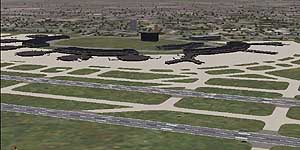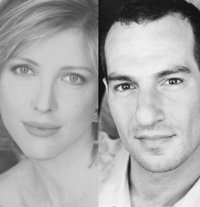. It is bordered by the
on the northwest. It is named after the ancient
. The capital and largest city is
, located on the Atlantic coast.
Main article: Politics of Mauritania Politics After independence,
President Moktar Ould Daddah, originally installed by the French, formalized Mauritania into a
one-party state in 1964 with a new
constitution, which set up an
authoritarian presidential regime. Daddah's own
Parti du Peuple Mauritanien (PPM) became the ruling organization in a
single-party system. The President justified this decision on the grounds that he considered Mauritania unready for western-style
multi-party democracy. Under this one-party constitution, Daddah was reelected in uncontested elections in 1966, 1971 and 1976. He was ousted in a
bloodless coup on
July 10,
1978, after bringing the country to near-collapse through a disastrous
war to
annex the
southern part of
Western Sahara, in an attempt to create a "
Greater Mauritania".
The Ould Daddah era (1960-78) Col. Mustafa Ould Salek's
CMRN junta proved incapable of either establishing a strong base of power or extracting the country from its destabilizing conflict with the
Sahrawi resistance movement, the
Polisario Front. It quickly fell to be replaced by another military government, the
CMSN. The energetic
Col. Mohamed Khouna Ould Haidallah soon emerged as its main strongman, and by giving up all claims to Western Sahara he found peace with the Polisario, and improved relations with its main backer,
Algeria - but relations with the other party to the conflict,
Morocco, and its European ally
France, deteriorated. Instability continued, and Haidallah's ambitious reform attempts foundered. His regime was plagued by attempted coups and intrigue within the military establishment; in 1984, finally, he was deposed by
Col. Maaouya Ould Sid'Ahmed Taya.
CMRN and CMSN military governments (1978-84) The
Parti Républicain Démocratique et Social (PRDS), formerly led by President
Maaouya Ould Sid'Ahmed Taya, dominated Mauritanian politics following the country's first multi-party elections in April 1992 following the approval by
referendum of the current
constitution in July 1991. President Taya, who won elections in 1992 and
1997, first became chief of state through a December 12, 1984 bloodless coup which made him chairman of the committee of military officers that governed Mauritania from July 1978 to April 1992.
Political parties, illegal during the
military period, were legalized again in 1991. By April 1992, as civilian rule returned, 16 major political parties had been recognized; 12 major political parties were active in 2004. Most opposition parties boycotted the first legislative election in 1992, and for nearly a decade the parliament was dominated by the PRDS. The opposition participated in municipal elections in January-February 1994 and subsequent
Senate elections, most recently in April 2004, gained representation at the local level as well as three seats in the Senate.
Mauritania's
presidential election, its third since adopting the
democratic process in
1992, took place on
November 7,
2003. Six candidates, including Mauritania's first female and first Haratine (former
slave family) candidates, represented a wide variety of political goals and backgrounds.
Incumbent President
Maaouya Ould Sid'Ahmed Taya won reelection with 67.02% of the popular vote, according to the official figures, with
Mohamed Khouna Ould Haidalla finishing second.
Sid'Ahmed Taya recognized
Israel (see
Foreign relations of Mauritania), which made Mauritania the only Arab country not neighbouring Israel which recognized the latter (Morocco and Qatar have official ties with Israel, but do not fully recognize it). He also started cooperating with the United States in antiterrorism activities, which was criticized by human rights NGOs, who talked of an exaggeration and instrumentation of alleged terrorist activities for geopolitical aims.
[3][4] A group of current and former Army officers launched a bloody but unsuccessful coup attempt on June 8, 2003. The leaders of the attempted coup were never caught.
Ould Taya's rule (1984-2005) On
3 August 2005, a military coup led by Colonel
Ely Ould Mohamed Vall ended Maaouya Ould Sid'Ahmed Taya's twenty-one years of strong-arm rule.
On August 3, the Mauritanian military, including members of the presidential guard, seized control of key points in the capital of
Nouakchott. They took advantage of President Taya's attendance at the funeral of
Saudi King Fahd to organize the coup, which took place without loss of life. The officers, calling themselves the Military Council for Justice and Democracy, released the following statement:
The national armed forces and security forces have unanimously decided to put a definitive end to the oppressive activities of the defunct authority, which our people have suffered from during the past years. (BBC) The Military Council later issued another statement naming Colonel Vall as president and director of the national police force, the
Sûreté Nationale. Sixteen other officers were listed as members. Colonel Vall was once regarded as a firm ally of the now-ousted president Sid'Ahmed Taya, even aiding him in the original coup that brought him to power, and later serving as his security chief.
Applauded by the Mauritanian people, but cautiously watched by the international community, the coup has since been generally accepted, while the military
junta has organized elections within the promised two year timeline. In a
referendum on
26 June 2006, Mauritanians overwhelmingly (97%) approved a new constitution which limited the duration of a president's stay in office. The leader of the junta, Col. Vall, promised to abide by the referendum and relinquish power peacefully. Mauritania's establishment of relations with the
State of Israel - it is one of only four Arab states to recognize Israel - was maintained by the new regime, despite widespread criticism from the opposition, who viewed it as a legacy of the Taya regime's attempts to curry favor with the West.
Parliamentary and municipal elections in Mauritania took place on
19 November and
3 December 2006.
August 2005 military coup The first fully democratic Presidential election since 1960 occurred on
11 March 2007. The election is the final transfer from military to civilian rule following the military coup in 2005. This is the first time the president will have been selected by
ballot in the country's history.
The election was won by
Sidi Ould Cheikh Abdallahi.
2007 Presidential election Main articles: Regions of Mauritania and Departments of Mauritania Geography Main article: Economy of Mauritania Economy In February 2006, the Mauritanian government denounced amendments to an oil contract made by former leader Maaouiya Ould Taya with
Woodside Petroleum, an
Australian company. In 2004, Woodside had agreed to invest $US 600 million in developing Mauritania's
Chinguetti offshore oil project. The controversial amendments, which Mauritanian authorities declared had been signed "outside the legal framework of normal practice, to the great detriment of our country", could cost Mauritania up to $200 million a year, according to
BBC News. Signed by Woodside two weeks after the February 1, 2005 legislation authorizing the four amendments, they provided for a lower state quota in the
profit-oil, and reduced taxes by 15 percent in certain zones. They also eased
environmental constraints, and extended the length and scope of the exploitation and exploration
monopoly, among other measures.
The disputed amendments were signed by former oil minister
Zeidane Ould Hmeida in February 2004 and March 2005. Hmeida was arrested in January 2006 on charges of "serious crimes against the country's essential economic interests".
Nouakchott's authorities declared that the government would likely seek international arbitration, which Woodside (which operated for
Hardman,
BG Group,
Premier,
ROC Oil,
Fusion,
Petronas,
Dana Petroleum,
Energy Africa and the
Hydrocarbons Mauritanian Society) also contemplated.
Discovered in 2001, Chinguetti has proven reserves of about 120 million barrels of oil. At the end of December 2005, authorities estimated that in 2006, the oil profits would be 47 billion
ouguiyas (about US$180 million) and represent a quarter of the
state budget, according to
RFI.
The Australian Federal Police are currently investigating Woodside for allegations of bribery and corruption in Mauritania (according to the Sydney Morning Herald
[6] [7]).
Dispute with Woodside Petroleum Main article: Demographics of Mauritania Demographics Music of Mauritania Modern day slavery [8] Islam in Mauritania Status of religious freedom in Mauritania
Demographics Music of Mauritania Modern day slavery [8] Islam in Mauritania Status of religious freedom in Mauritania Mauritania and
Madagascar are the only two countries in the world not to use
decimal-based currency. The basic unit of currency, the
ouguiya, comprises five
khoums.
See also

 Permanent Under Secretaries of State of the Home Office
Permanent Under Secretaries of State of the Home Office Jansenist theology
Jansenist theology

 Ground transportation
Ground transportation
 Demographics
Demographics
 Performance venues and other facilities
Performance venues and other facilities 1832-1918
1832-1918
 Filmography
Filmography
 Rockies alternate logo 2001-present
Rockies alternate logo 2001-present Radio and television
Radio and television